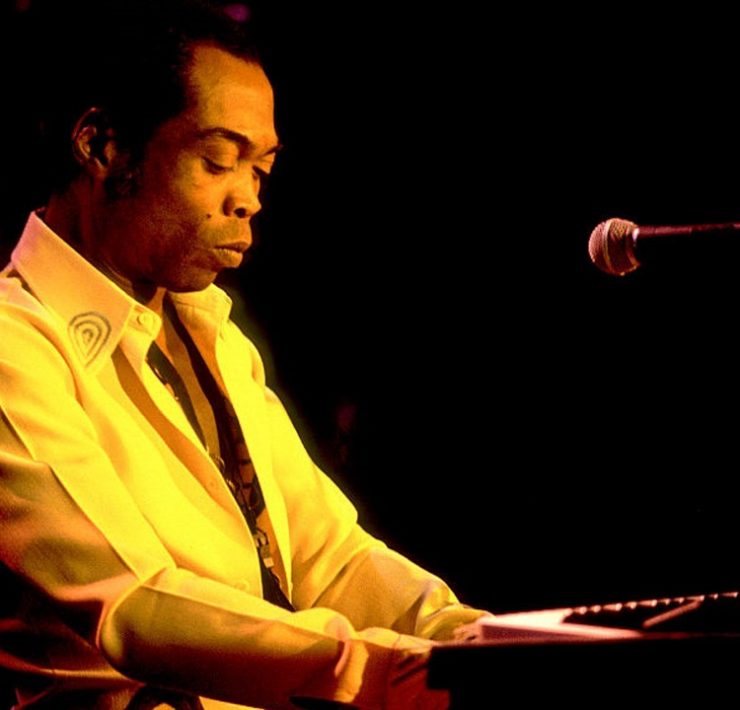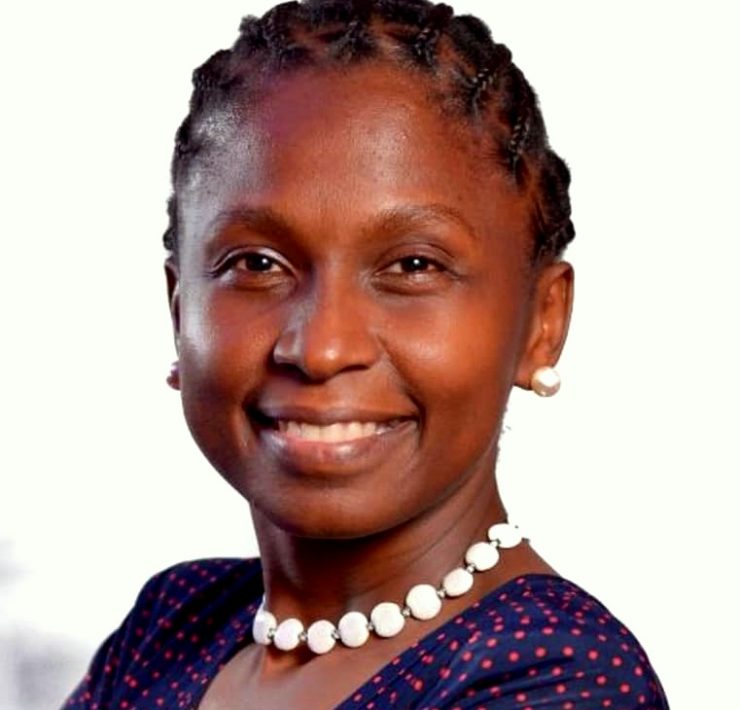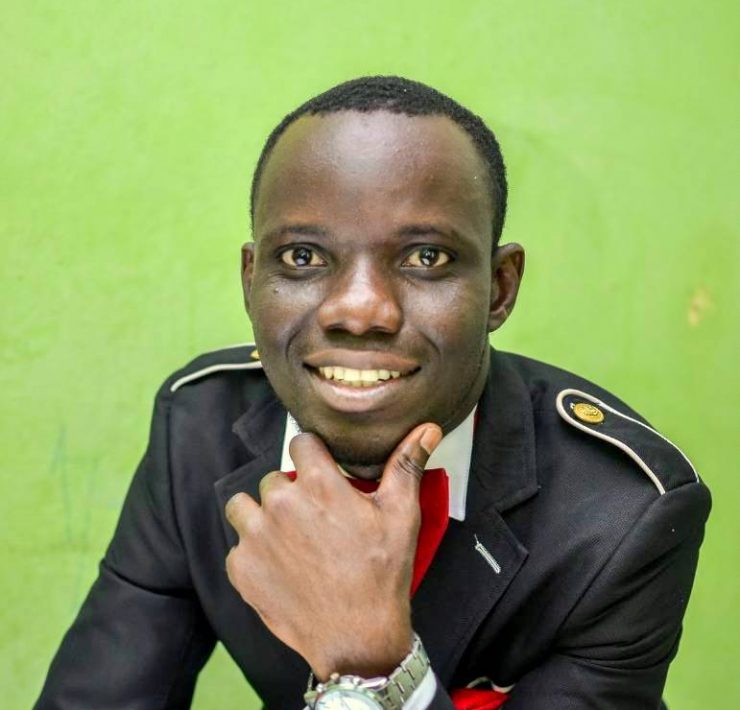Mary Njoki
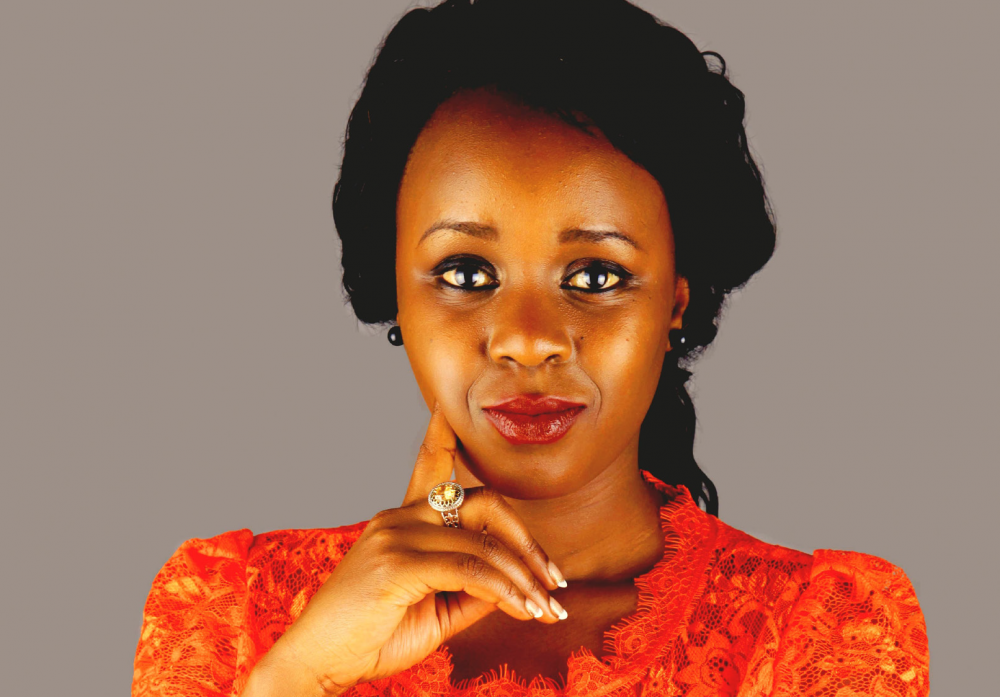
Passionate about getting God's message concerning Afrika and the end…
CEO, GLASS HOUSE PR LTD, KENYA
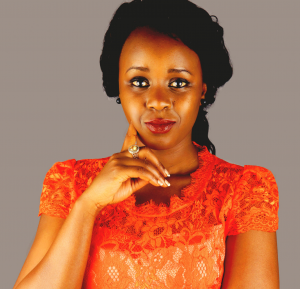
Who is Mary Njoki?
A vanguard and an innovator who goes into spaces others may not be able to, in order to become and to open doors for others.
What’s the idea behind the name Glass House PR?
When I was starting out my focus was on clear communication and transparency, but I have come to have a deeper understanding of what a glass house looks like or should be and so for me Glass House is a place where God dwells.
I’ve read some of your posts on Facebook where you called yourself a village girl that rose to be the CEO of a PR company. Is that village girl narrative literal or metaphorical? If it is literal, can you shed more light on that?
Actually it’s people who wrote articles and called me the ‘village girl who rose to be a CEO of a PR company’. It’s literal, I grew up in a village called Ngarariga in Limuru; I came to Nairobi when I was an adult. I know sometimes when people are interacting with me they tend to notice the village girl in me.
Then, of course, when I quit employment I went back to the village and that’s where I started the company, I think that’s why that narrative has been pushed.
I think it also encourages. For example I went back to my former primary school recently and it was very interesting and sad as well, to interact with 14 year olds who have no idea maybe what is happening in Nairobi. I remember asking them a question, “Does anyone know what IT is?” And they didn’t know. I thought in Nairobi an 8 or 5 or 6 year old usually knows what IT is, so the narrative is usually used to encourage people, especially when you’re coming from a place where people thought nothing good could come out of. So that’s why that has been out there.
What do you think is the effect of this on them and what can companies like Glass House PR do to help?
I think it’s the quality of teachers and maybe the quality of what they are taught in school. What we can do is continually go to them and encourage them and teach them and mentor them.
Seven years ago you embarked on a journey to change the face of Public Relations in Afrika, and you seem to have struck some very positive chords, working with interesting clients, winning awards and gaining positive recognition in the media. What do you attribute this to?
Of course I attribute this to God, because when I started I didn’t know whether I’d get interesting clients, I didn’t know people win awards and I didn’t know there would be positive recognition in the media; I was just doing what was natural to me. I started off at the age of 23, my life started really early, I had finished high school at the age of 16 and by 19 I was working. It’s not normal for one to start a company at the age of 23, but for me it was actually normal. I had left the company that I was employed at and I had gone back to the village. All I had was KES 6,000/- (approximately USD 60). I remember that before leaving the previous company I had these ideas especially about digital communication, because my background is in IT, and I kept giving ideas but it seemed that no one was accepting them. So the frustration of that made me start out and I felt like I had something to offer to the world at that particular moment, it’s only on that I discovered that my life has never been normal. Being called Mary, which means ‘Rebellion’, it’s like I rebelled against all systems and culture.
I didn’t have the whole picture, I still don’t. I was moving as I was seeing and I can say I would hear God at that particular level that I was and He would surprise me. And it was not even about the money that some of the companies paid me, it was about how He opened my mind to it or how He surprised me. I was shocked, “Oh my God, I just started this company in the village, we’re three years old, and we’re working with Facebook.” For real that was a big deal; that for me was a testimony.
In what areas have you seen God at work guiding you using His very own Executive Playbook to run Glass House PR?
I think in every part, even when I wasn’t conscious. Like when I started, I wasn’t conscious of what the platform represented, but I saw Him. You know it’s like when He says He’s the One ‘Who works in us to do and to will’, I wasn’t conscious at all. He was behind the scenes playing out things and He’s still behind the scenes. I know there is much more that this platform represents for Him and sometimes He allows me to see just a little. I remember one day thinking, “Maybe if I saw the whole picture I would just run away,” because sometimes it can be too overwhelming. Actually, when I look back I think that was so crazy, a 23 year old child starting a company with KES 6000 knowing that there are other ‘giants’ who have been in the industry for 20-25 years plus. But then there I was and I believed that I could and I wasn’t afraid of anyone; I still don’t understand how that worked out, I can only say it is God. Now I’ve come to a place where He requires faithfulness from me because of the things He’s said about Glass House and some of the processes of being tested about faithfulness (and it’s a continuous process) have not been easy. I’ve gotten to a place where I understand and I am now conscious that this is a platform of God and I have to continually submit everything in myself to Him, to continually hear what He is saying and to know it’s not about me, it’s about Him. Now I don’t do a thing unless He tells me to.
I think Glass House has been the tool God has used to teach me about Himself. I see a different side of God all the time, the One Who provides, the One Who teaches all things… The first time I was invited to do a PR training (I don’t even have a degree for PR, I had started but then I dropped out) God trained me in what to do. The PR training was for very senior people from different companies and I remember afterwards they said, “This was amazing.” They gave 10/10 in their evaluations; and I’m like He’s the One Who teaches us all things.
I’ve learnt to walk with Him, I’ve seen the places where I haven’t, He’s shown me there are places where He has given me dreams and I’ve controlled them. I’ve been in and out of place, but He’s continually teaching me how to be like Him and that this platform belongs to Him.
How do you tie it to who God says you are, and how do you deliberately live that out in your business?
I now know who God says I am and I have been very deliberate in regard to how I interact with this platform that God has given me. At the beginning I remember God saying, and it was very clear in my heart, that even if I didn’t exist, Glass House would exist because I’m just a steward who has been trusted with that which is of God.
As I’d shared earlier Glass House has been used by God to sharpen me, to help me see different sides of God and to become who He requires me to become through the shadow of death, through the valleys and through the mountains with God. Even learning about money with Him, learning about giving, there are so many things that I have learnt through this platform.
Starting out young as you did was indeed a very courageous move that not many would make. Is this what inspires you to help others get started through your coaching program, A Billion Startups?
Actually what inspired me to start A Billion Startups came way later. I started the company in 2012 and as I’ve explained earlier I started with KES 6000/- then I had one client who was paying me like KES 5000/- a month, but the more I walked it’s like He kept surprising me.
My background was in IT so I decided to develop a PR system, which we are hoping to launch soon. I had paid someone in India to develop a prototype for me and one day, in an amazing way, I was shortlisted to go to the US to present the software. Glass House PR was to display the software on the third day of the exhibition. I had asked a friend to come and help me out. On the same day we were to exhibit, a man called Chris Sacca, who was a guest investor on Shark Tank, was to speak at a particular stage at 12 noon. I told my friend that at 12 I would be going to see him, he was the big oga (boss) in that conference.
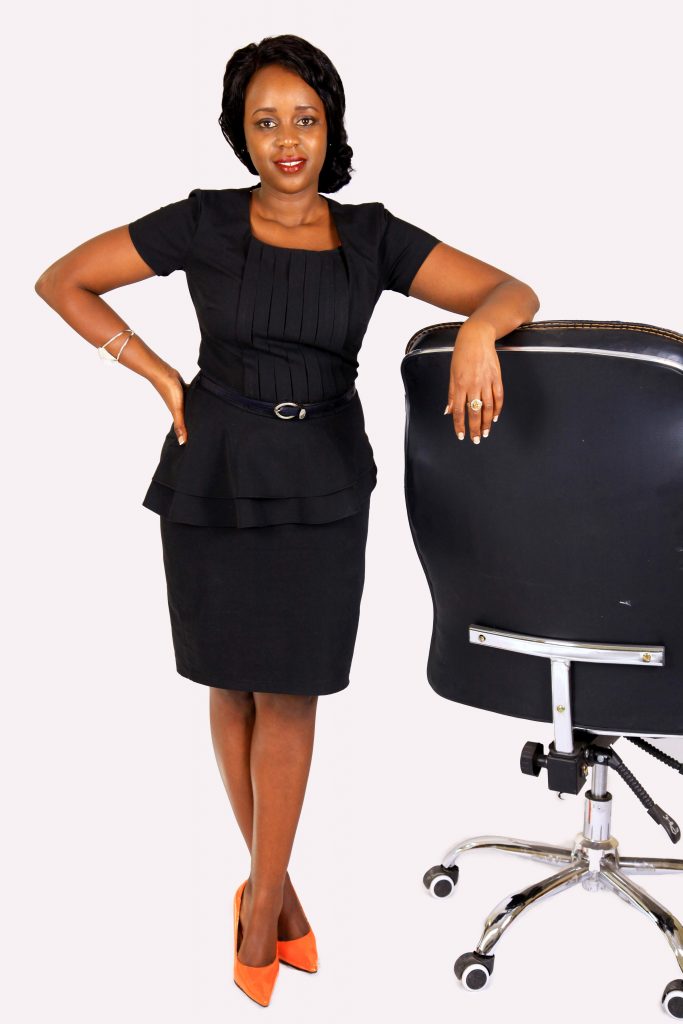
When I entered the hall everyone was standing, there was no room to sit. I was at the back and I wondered if I would even see him. I just wanted to catch a glimpse of him, take a brief photo and leave. Then suddenly someone who was seated on the third row walked out, I don’t know why he moved, but he was creating room for me. I was so happy! I went quickly through the people and sat. Chris Sacca went on stage and said, “Today I am talking about women and diversity and I want to sit next to a woman.”
Everyone was screaming for him to pick them. Then he told me, “You, come.” I remember how shocked I was. I walked on stage, sat next to Chris and he asked me, “Where are you from?” I was like, “I’m from Kenya.” Then he said, “You came all the way from Kenya for this conference?” I said, “Yes.” Then he said, “Oh you’re such a badass…” (You know how they talk). And for the next three minutes he talked about Kenya and he said Kenya was a decade ahead of them in terms of mobile technology. He talked about MPESA and that’s all I remember because for 10 minutes I was star struck. Then he asked me to go with him back stage to take a photo. It was very interesting because I had gone to take a photo of him, but he was asking to take a photo with me.
As I was leaving, the media were there and they were asking me, “Oh my God how was it to meet Chris Sacca?” At some point I had asked Chris who I could talk to if I wanted to get in touch with him, and he pointed at his fund manager who I later connected with. So I was on New Orleans TV talking about meeting Chris Sacca, but of course I talked about Glass House and Kenya and Afrika.
Then as I was walking towards my exhibition, there’s a place investors were seated. There was this rule that unless an investor invited you to meet him you could not go there. As I was passing by, one of the investors called me, saying, “You’re the girl who was with Chris Sacca on stage; these are my contacts. I’m an investor from Israel…” and it was amazing.
When I got to our exhibition stand, my friend said she just saw me on Twitter, because it was trending. People started coming to our exhibition and saying “Oh I’m so jealous that Chris Sacca chose you” but as the participants were coming, there were also investors coming.
I remember that day thinking “Wow, these people might not want to invest in Glass House but they might want to invest in something that is an MPESA, not that Glass House is not.” The realization that I got is that God has graced me to meet people that other people might not meet. Because of that I have to create a platform that enables people to connect with people they cannot connect to. It was so clear to me when I left America, that I had to start a platform for startups where I can inspire them, encourage them and connect them to the people they might need.
The other reason for starting a billion startups was of course my journey. I noticed most entrepreneurs think the only need they have is a need for finances and remembered that for me, what I needed was a skill. I created my own website and that’s how I started marketing myself.
Actually, with my 6000, I bought a modem that didn’t work in my village and I had to borrow more to buy a modem that worked in my village, but the skills I needed were the marketing skills. I had IT skills, which are what I used as my capital. So capital is not always money, it can be a skill, a network, someone you know… so those are some of the things that triggered the process of A Billion Startups.
What is the idea behind A Billion Startups, and has it been effective in helping business startups take their first steps?
The idea is to support, mentor, train and to demystify this narrative out there that capital must be money. Over the years I have trained and mentored over 100 entrepreneurs, but I believe there’s so much more. We have not yet built a proper structure and system around it because I am still very busy with Glass House and other projects that I’m supposed to be doing. But we’ve seen some companies that have come to us and we introduced them to someone and their business took off; others came to us, they didn’t know how to market themselves, we trained them, they took off; someone was looking for a client, they got a client; someone was looking for some skills, they got some skills. It’s been an interesting process for most of the people who have attended A Billion Startups. We are working on the system and structure now to expand the platform and to help more entrepreneurs in Afrika.
What are the challenges that you have encountered along the way and how have you seen God’s hand helping you to surmount them?
Some of the challenges at the beginning, capital, maybe not having the right team and not being trusted because I was young or the company was new in the market. But I think it was just in the head, because later on I could see the narrative that God was telling. So from my own perspective they are not actually challenges, because everything works together for good.
I remember a year we had this one client who used to be very harsh on us and every time we would go and pitch to get other clients we never would get them, but then later that year I understood that I was being tested about faithfulness – to see whether I believed what God has said about this company.
So I wouldn’t call them challenges, I would call them opportunities to grow and opportunities to perfect that which God had started.
What would you say has been your greatest success to date?
It depends on how we define success, some can say working with FB, Viber or the Ethiopian Government was a success, but those are just nice milestones that were a surprise from God. From a professional perspective, it is also to see small companies grow using PR. For example, a company we worked with came to the country with only one person on the team, but over the years they were able to grow using PR. We used a lot of Facebook and media relations, and over the years they were able to open outlets in Nairobi and even in other East African cities and our success came through PR activities, not any other activity.
Afrika certainly is in need of some quick and decisive help in order for her to rise to her true potential. As a PR practitioner, what’s the most critical solution you can give to help Afrika make this shift?
I believe the critical solution is knowing our identity. I think for many years the reason we haven’t made this shift to become who we are supposed to become, is because we didn’t know who we are. Our identity over the years has been tainted… I think colonialism did a number on us, but also the way things turned out after colonialism. As I visit different Afrikan countries, I realize we don’t know who we are and we don’t understand what we carry.
Afrika is like a sleeping giant and grass is growing on it and everyone is taking advantage of us. Right now we seem to feel like we have to look to the west or east for them to define who we are, but once we understand who we are when our identity is restored and we can become who we were meant to be.
Even the ones that are calling us third world have taken minerals, human labor et cetera, from us. Of course it will take a renewal of the mind for the people of Afrika to realize who they are, and a lot of healing, because for many years the people of Afrika have thought of themselves in a certain way, but in the recent past you’ve seen announcements being made by different Afrikan icons. ’Yes we can’ or ‘Your dreams are valid’ or ‘No human is limited’ like Eliud Kipchoge. There are many announcements being made from Afrika, especially from Kenya (being very critical in Afrika) but then if you go down the road to a village, to the market, you’ll find Kenyans complaining about Kenya because they don’t understand our identity. I have discovered that when you’re so clear in your mind who you are, there’s a potential you rise into, so I believe Afrika needs to rise to that potential.
What words would you give others in Afrika concerning allowing God to constantly lead them in their businesses or even in places of employment?
I would encourage them to allow God to lead them from the beginning. To know if this is the place that they’re supposed to be at in terms of employment or in terms of starting a business. What I can say is that I had a conviction about Glass House PR, I cannot explain it. I didn’t know very much about PR, but I’m learning every day. I think number one, if you are convicted that this is what you are supposed to be doing, the rest you leave to Him. You continually ask Him, “Is this what I’m supposed to be doing?” I believe each person has been called for a particular thing on earth and our businesses or our jobs are some of the things that we express what we are called to do, but also on a higher level, they are gates that need to be possessed for God. So, what are these gates? Have you been able to recognize that this is the conviction that God has given you about family, about media, about education, about arts, about science? Out of that then you’re able to walk with Him every day and sometimes you don’t have to see the bigger picture. I didn’t have the bigger picture. You don’t have to have a five-year plan, you know? It’s just to trust the Lord with all your heart and continually walk with Him even while not having the bigger picture. I believe having a conviction about what one is doing is very important because it means you can even do it for free.
When I started, the first two years, three years I did a lot of free jobs, but then I realized it’s ’cause of this conviction I had, and I loved what I was doing. I later realized it was God who was working in me to do and to will and for this platform to be birthed for Him, but I know even now after seven years there’s much more as we get into the new beginning.
Any last words for young entrepreneurs and would-be entrepreneurs?
I don’t think I want to talk to young entrepreneurs alone, but anyone who wants to be an entrepreneur. As I said earlier, it’s about the conviction that you have. If you have a conviction and you know this is what you’re supposed to do, I think you should go ahead and do it, if not there’s always something else that can be done. Be passionate about it and know that the journey of entrepreneurship is a journey of patience and perseverance. There are so many things you learn on the way to becoming an entrepreneur, it’s not a one-day thing. As long as you have that conviction and start moving then there’s much more that is going to be opened for you and there’s much more that you’re going to learn.
MEDITATE ON THIS
Where a man’s treasure is, there will his heart be and where a man’s heart is, that will be the object of his pursuit. Happiness and its pursuit have become what many are talking about globally, and the acquisition of that which gives them most happiness is what many are chasing. Some chase after the ever elusive happiness, doing whatever it takes to get it. But obviously, as we all can see, the pursuit of happiness in this world is like a chase after shadows and dust. It’s a mirage. And the reason is simple. Happiness and the state of happiness as they relate to materialism, emotional gratification, pursuit of status, fleshly desires are nothing but transient feelings of futility. They are here one minute and gone the next minute. Every form of materialism always comes with an expiry date and whatever can expire is not worth the chase of an entire lifetime. You don’t have to believe me that the chase of futile happiness is nonsense, but the proof always comes at the death bed.
FOR COUNSEL ON DOING BUSINESS GOD’S WAY, PLEASE USE:
counsel@msingiafrikamagazine.com
What's Your Reaction?
Passionate about getting God's message concerning Afrika and the end times to the world, in order to heal, restore and rebirth Afrika to her true purpose and destiny in God.











